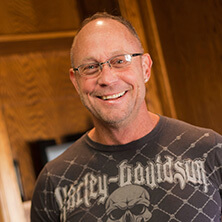
Post-Heroin: How or Why I Became a Writer
Written by Craig Rogers, Posted on
Post-Addiction and recovery: getting a job and starting a career, and living a life off the couch.
"Writing has become my life’s activity, and every once in a while I realize I’m living a life I thought was unattainable."
There can be a viable and thriving life after heroin addiction. There are countless stories of vocational success from those who endured and are in active recovery. Here is just one - an interesting and raw depiction of a heroin addict as he navigates his career and work life in recovery. I can identify and relate to this story.
Original article found on TheFix.com by Zackary Siegel - May 22nd, 2016
When I moved from the Twin Cities back to Chicago, where I grew up, I noticed that upon meeting new people they were prone to asking, “What do you do?” My unemployed friend who is not seeking work (but recently enrolled in a coding boot camp) also noticed this introductory platitude, about which he anecdotally agrees occurs frequently in Chicago, as opposed to other, smaller, laidback cities.
There’s a whole sizing up scenario that follows the question. My friend doesn’t do anything for a living so when someone asks him, “What do you do?” And he replies, “Nothing,” it baffles the asker. His “nothing” gives the asker nothing to go off of. The asker is faced with the inability to heuristically situate him within a model of what type of person he is based on his non-career.
"The conversation usually stops, my friend told me, because he doesn’t care to ask about whatever crappy job the asker holds, who, if I’m cynical—and I am—only asked in the first place so he or she could drone on about his or her own job: social media strategist?"
If I’m asked the job question I usually don’t tell people that I write stuff. There’s good reason to avoid the ensuing questions: what do you write about? For whom? A blog? A dick thing to say would be: Google me. I don’t say that but my thoughts are not above traveling down that line. Googlio meus ergo sum: I can be Google’d therefore I am. 
I am not sure when exactly but at some point during my post-drug addled early 20s era, I did become a person who writes stuff for a living. My meanderings are a speck among the 24-hour blitz of content bombarding your feed. Writing digitally comforts me in that it mimics the way I see life in the non-virtual world: small and insignificant.
So I don’t take it for granted that you’re interested in my so-called career and me. Most of the time, I’m not even interested. But there is one thing that interests us all, I think, and that is how we move from being whoever we were while hurting ourselves and others in addiction to how it is we became who we are now.
Work, perhaps in a Marxian way, may help us understand how we move through time, how what we do reflects upon who we’re becoming.
Marx wrote, “The animal is immediately one with its life activity. It is not distinct from that activity; it is that activity.” I did more than a decent amount of nothing before kicking heroin. According to Marx, then, I was nothing.
In the years leading up to a lengthy stint of treatment, I resigned to couch-life, e.g., several heroin injections per day set to the rhythms of god-awful television. Mostly, I watched people cook food for sport—the guy who gorges for a living, whose leather jacket doesn’t quite fit right by the end of each episode.
I watched these shows despite my total disinterest in actual food and the process of eating it. I preferred the simulation of food to the real thing. Much the same way, I think, people who watch a lot of porn become bored with real sex.
Couch-life, to state the obvious, is totally insular. The people I saw on the day-to-day—aside from my friends on the corner with an endless supply of tiny-baggies—were flat images, clad in starched white chef garb, surgically piping icing onto a cake no one will eat. Per the American maxim of being young and vital, couch-life is not a life one can brag about, which is as good a reason as any to commit to it.
Post-treatment Aftercare Plan - Post Couch-life
Per my post-treatment aftercare plan, I moved into a halfway house in St. Paul, Minnesota, a Midwestern hodgepodge sustaining gold rush-like conditions—only there is no gold, just oodles of sober houses and people strongly recommended to live in them. In fact, around 2007, there were so many sober houses opening in St. Paul that a citywide moratorium was issued on all new sober living quarters.
"A regulation soon followed stating there must be a 330-foot distance between all recovery-related homes, which basically amounts to one per block. There are thousands of blocks in St. Paul."
Aside from abstaining, the second most important rule to abide by in these houses is to obtain stable employment. Couch-life is objectionable in recovery, as it is within the broader ethos of American culture. People don’t actually care what you do for a living,but it better be something, anything.
A smart guy I know told me his definition of recovery is that upon being “recovered,” one should be indistinguishable—economically, materially, hygienically, etc.—from any or everybody else. If that’s the yardstick, those who watch House Hunters or Hannibal in gray sweatpants all day are easily distinguishable from those who get jobs and do things.
But in fairness, so long as you’re paying rent (typically $500-$600 per month) and perpetually looking for work, you won’t get the boot. But if you do get kicked out, there is another house on the next block that will take you. Anecdotally, it’s those that have families willing to fork their rent that are liable succumb to couch-life, or sloth in general.
Job prospects for the newly sober were plenty in St. Paul. Not far from my new residence was an abject superstructure containing five Caribou Coffees, two Auntie Anne’s Pretzels, four Sunglass Huts, and two Panda Expresses.
A hollowed out monolith, the inside of which maintains the bodily ideal temperature of 70 degrees whether it be spring, summer, winter or fall. There is a store called Minnesot-ah! The fact that there is only one Cinnabon remains to this day a goddamned travesty.
I applied to work at Barnes & Noble because I like the smell. There is only one Barnes & Noble in all of Mall of America. I didn’t get the job—but had there been two Barnes & Nobles?
Please continue reading this article by clicking on "Next Page" below.
More about TherapyInsider: TherapyInsider is a powerful resource for families wanting straightforward answers to today’s problems. We recognize the challenges that exist for parents battling for a child caught in the grip of addiction, a spouse suffering from an emotional set back or a young adult struggling to leave the nest and find their way into the world.
This site acts as a bridge between the problems we all face and the solutions that are just around the corner. Our goal is to educate Parents and Troubled Teens by providing them access to a news worthy line-up of articles, videos and feeds that offer fresh, real-world perspectives on the problems they are facing.
Therapy Insider provides direct access to the best parenting support, family counseling, and therapeutic help for troubled teens and young adults struggling with substance abuse and addiction.
